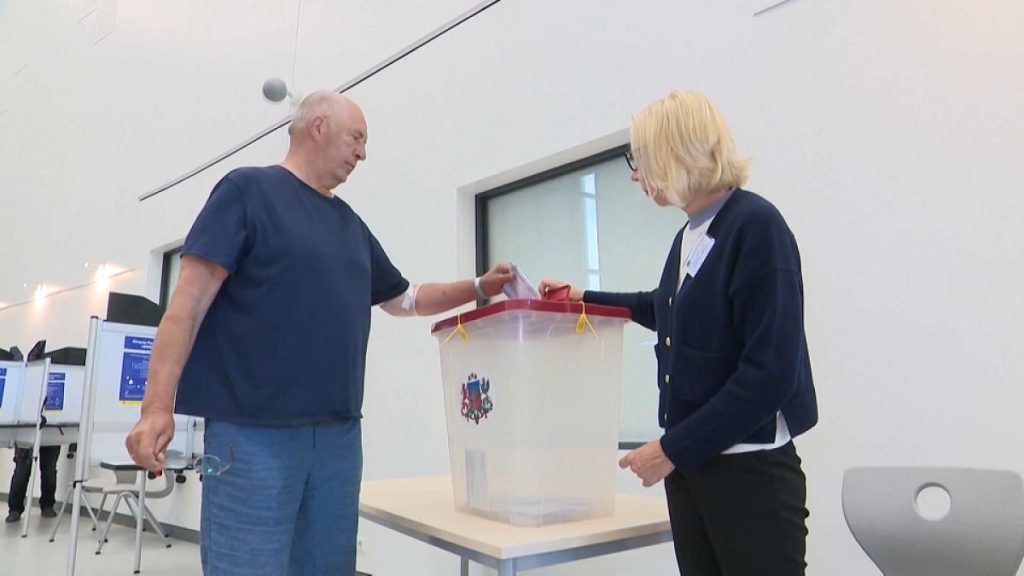The voter turnout for the recent EU elections in Latvia was stable at 33.7%, according to the Central Election Commission. This figure is slightly higher than the data from 2019 but significantly lower than the turnout in 2009 when over half of eligible voters participated. Despite a Eurobarometer survey indicating that 65% of Latvians were willing to engage with the elections, around a third of respondents in opinion polls expressed no interest in the EU elections. Younger respondents were less likely to follow the elections, while older participants showed more interest in participating.
In the lead-up to the EU elections, candidates from 16 parties were competing for Latvia’s nine parliamentary seats. The centre-right National Alliance party was leading the polls, campaigning on a platform to defend Latvia’s interests in the EU. The Progressives party focused on supporting Ukraine and advocating for stricter environmental controls. The New Unity party emphasized security issues, condemning Russia’s invasion of Ukraine and supporting EU enlargement. The parties had different priorities and approaches to key issues, appealing to different segments of the electorate.
Security is a significant concern for many Latvians, especially following Russia’s invasion of Ukraine in 2022. Latvia, located on the easternmost fringes of the EU, shares a border with Russia. More than 60% of Latvians speak Latvian, but around a third are Russian speakers. The national broadcaster’s decision to hold pre-election debates in Russian sparked protests, highlighting the sensitive nature of language and identity issues in the country. Many Latvians fear a revisionist Russia and believe that security measures, such as conscription, are crucial for protecting the country.
The National Alliance party advocated for increased defense spending and stronger borders to address security concerns. The Progressives party focused on supporting Ukraine and environmental initiatives, while the New Unity party emphasized the threat posed by Russia and the importance of EU enlargement. These different approaches to security and foreign policy reflect the diverse concerns and priorities of Latvian voters. The decision to hold some pre-election debates in Russian sparked controversy, highlighting the complex linguistic and cultural dynamics in the country.
Despite concerns about voter engagement and turnout, the EU elections in Latvia took place without incident. Technical glitches affecting turnout data led to initial confusion about the voter turnout numbers, but the CVK later clarified the situation. A combination of factors, including differing levels of interest among age groups and concerns about security and foreign policy, influenced voter participation in the elections. The results indicated that there is a wide range of opinions and priorities among Latvian voters, reflecting the country’s diverse political landscape and historical context.












